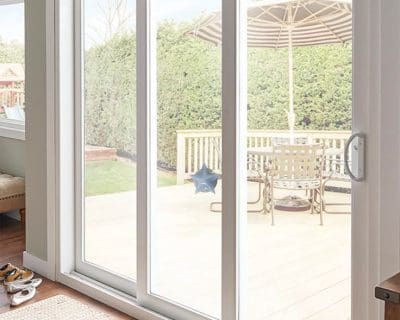Blog
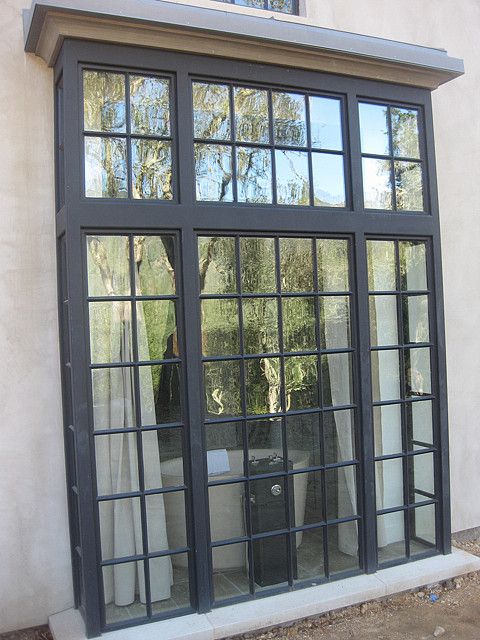
Steel vs Aluminium Windows
Steel vs Aluminium Windows: A Comprehensive Guide to Choosing the Right Fit for Your Home
When selecting the perfect windows for your home or office, the decision often narrows down to two prominent materials: steel and aluminium. Each material boasts unique strengths and weaknesses, making the choice dependent on your specific needs and preferences. Here’s a detailed comparison of steel and aluminium windows, covering aspects such as durability, aesthetics, energy efficiency, cost, maintenance, and environmental impact.
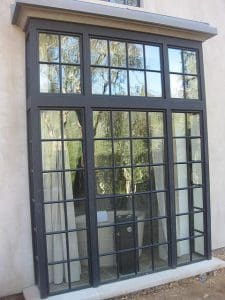
1. Durability and Strength
Steel Windows
Steel is renowned for its incredible strength. These windows are highly durable and can withstand heavy loads and extreme weather conditions. Steel windows are less likely to warp or deform over time, making them a reliable choice for long-term use. This strength also allows for thinner frames, maximizing the glass area without compromising structural integrity.
Aluminium Windows
Aluminium is also a durable material, but it is lighter and less robust than steel. Modern aluminium windows are treated to resist corrosion and wear. For residential use, aluminium offers sufficient durability and is less prone to rust compared to untreated steel. Aluminium’s strength increases in colder temperatures, unlike steel which becomes brittle at low temperatures.
Winner: Steel, for its ultimate strength and longevity.
2. Aesthetics and Design
Steel Windows
Steel windows are often associated with classic and industrial aesthetics. They offer a timeless, bold look with slim profiles that are perfect for modern homes or heritage buildings. The ability of steel windows to create large, uninterrupted panes of glass makes them a popular choice for luxury projects.
Aluminium Windows
Aluminium windows are versatile in design. They can be powder-coated in various colors, including trendy options like matte black or woodgrain finishes. Aluminium frames are ideal for minimalist and contemporary designs, making them a favorite for modern architecture.
Winner: Tie, as the choice depends on your design preference.
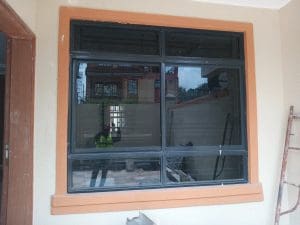
3. Energy Efficiency
Steel Windows
Steel has a higher thermal conductivity compared to aluminium, meaning it is less effective at insulating your home. Without proper thermal breaks, steel windows can contribute to heat loss in colder climates. However, advancements in thermal break technology have improved the energy efficiency of modern steel windows.
Aluminium Windows
Aluminium windows, especially those with advanced thermal break technology, significantly improve insulation. This makes them more energy-efficient and suitable for homes aiming to reduce energy costs. Thermal breaks in aluminium windows reduce heat transfer, enhancing overall energy performance.
Winner: Aluminium, for better energy performance.

4. Maintenance
Steel Windows
Steel windows require regular maintenance to prevent rust, especially in areas with high humidity or salty air. They may need periodic repainting to keep them looking fresh and to extend their lifespan. This maintenance can be time-consuming and costly.
Aluminium Windows
Aluminium windows are low-maintenance. They are resistant to rust and corrosion, requiring only occasional cleaning to maintain their appearance. The powder-coated finish ensures longevity without frequent touch-ups.
Winner: Aluminium, for minimal upkeep.
5. Cost and Maintenance Considerations
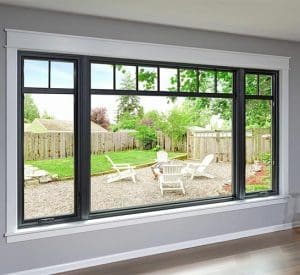
Steel Windows
While steel windows are generally cheaper to purchase upfront compared to aluminium windows, they require more maintenance over time. Steel windows need periodic repainting and protection against rust, which can add to their long-term costs.
Aluminium Windows
Aluminium windows, although often more expensive to purchase initially, offer significant savings in maintenance costs. They do not require repainting and are resistant to rust and corrosion, making them a more cost-effective option in the long run.
Summary:
- Steel Windows: Cheaper to purchase initially but require higher maintenance costs over time.
- Aluminium Windows: More expensive to purchase initially but offer lower maintenance costs and are more cost-effective in the long run.
Winner: Aluminium, for being cheaper to maintain, although steel windows can be more economical in the short term due to their lower initial cost.
6. Environmental Impact
Steel Windows
Steel is fully recyclable and has a lower carbon footprint during the recycling process, making it an eco-friendly option for environmentally-conscious homeowners. However, the initial production of steel is energy-intensive.
Aluminium Windows
Aluminium is also recyclable, and the quality of recycled aluminium is the same as virgin aluminium. However, the initial extraction process for bauxite (the ore used to make aluminium) is energy-intensive. Recycled aluminium has a much smaller environmental impact.
Winner: Steel, for its lower initial environmental impact.
Conclusion
When comparing steel and aluminium windows, the choice ultimately depends on your priorities:
- Choose Steel Windows if you value unmatched strength, classic aesthetics, and a long lifespan. Steel windows are ideal for those who prioritize durability and are willing to invest in a material that offers timeless appeal and structural integrity, despite the higher maintenance costs.
- Opt for Aluminium Windows if you prioritize energy efficiency, modern design, low maintenance, and long-term cost savings. Aluminium windows are perfect for those looking for a sleek, contemporary look with advanced thermal performance and minimal upkeep.
Both options bring distinct advantages to the table. For expert advice and high-quality installations, consider consulting with a trusted partner who can help you make an informed decision that aligns with your needs and preferences. Whether you’re looking for sleek aluminium windows or durable steel options, understanding these differences will help you transform your space with the perfect balance of style and functionality.
Frequently Asked Questions: Steel vs Aluminium Windows
Q: Which material is stronger, steel or aluminium?
A: Steel is significantly stronger than aluminium, being almost three times stronger in its original form. However, aluminium can be alloyed with other elements to improve its strength, and it becomes stronger in colder temperatures, unlike steel which becomes brittle.
Q: What are the aesthetic differences between steel and aluminium windows?
A: Steel windows are often associated with classic and industrial aesthetics, offering a timeless, bold look with slim profiles. Aluminium windows are versatile in design, available in various colors and finishes, and are ideal for minimalist and contemporary designs.
Q: Which material is more energy-efficient?
A: Aluminium windows generally offer better energy efficiency due to the use of thermal break technology, which minimizes heat transfer and improves insulation. Steel windows, while they can be thermally efficient with modern advancements, are less effective at insulating without proper thermal breaks.
Q: What are the maintenance requirements for steel and aluminium windows?
A: Steel windows require regular maintenance to prevent rust and corrosion, including periodic repainting. Aluminium windows are low-maintenance, resistant to rust and corrosion, and only require occasional cleaning.
Q: How do the costs of steel and aluminium windows compare?
A: Steel windows are often cheaper to purchase initially compared to aluminium windows, but they require higher maintenance costs over time due to the need for repainting and protection against rust. Aluminium windows, while more expensive to purchase upfront, offer long-term cost savings due to their low maintenance requirements.
Q: Which material has a better environmental impact?
A: Steel is fully recyclable and has a lower carbon footprint during the recycling process, making it an eco-friendly option. Aluminium is also recyclable, but the initial extraction process for bauxite is energy-intensive. However, recycled aluminium has a much smaller environmental impact.
Q: How do the durability and lifespan of steel and aluminium windows compare?
A: Steel windows are highly durable and can last more than 60 years without needing a paint finish. Aluminium windows typically have a lifespan of about 30-40 years without needing a paint finish. However, both materials can last longer with proper maintenance.
Q: Which material is more resistant to corrosion?
A: Aluminium is more resistant to corrosion than steel. Aluminium forms a protective oxide layer when exposed to air, protecting it from further damage. Steel, on the other hand, requires regular treatment to protect against rust and corrosion.
Q: Which material offers better security features?
A: Both steel and aluminium windows can meet current security standards, but steel windows are generally considered more secure due to their strength and the variety of locking methods available.
Q: Which material is better suited for extreme weather conditions?
A: Steel windows are highly durable and can withstand harsh weather conditions, but they can become brittle in cold temperatures. Aluminium windows, however, become stronger in colder temperatures, making them a better choice for areas with extreme winter conditions.



